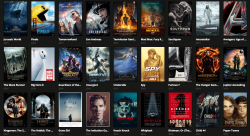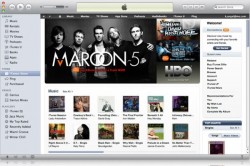How can I start this intro without mentioning the release of the new Star Wars: The Force Awakens trailer. Wow! Wow! Wow! I feel like crying!!
Now it has to be said that the Phantom Menace trailer was also awe-inspiring, so there’s still plenty of room for disappointment when the movie hits cinemas screens on the 17th of next month. But if they’ve even learned half of the lessons from the prequel disasters (lesson one: write better dialog), then this new Star Wars movie, one that I’ve been personally awaiting since my teenage days, will be a huge hit.
But there’s still plenty of time to hype up the new movie, because right now, we have to look at this week’s news stories.
![]()
Popcorn Time is the one headache for rights-holders that refuses to go away, and this week, the headache appears to have gotten just a little bit worse. Introducing BrowserPopcorn, a web app that gives you the full functionality of Popcorn Time (ie. Netflix for pirates) without having to install a damn thing. Well at least that was supposed to be the case before the MPAA got wind of it and took swift action, threatening the developer with lawsuits unless the site was pulled down. And it was.
Not that BrowserPopcorn, based on how it actually works, would have been a serious threat anyway – the way it worked by proxying torrent download via its own dedicated servers, meant that it could only support a few hundred users at a time without borking under the pressure.
A further confusing week for Popcorn Time continued when one of the main variant of the popular app (there are many variants due to the open source nature of the application) was permanently taken offline due to developers, fearing lawsuits themselves, left the project and when the app’s domain name was lost (perhaps only temporarily). It appears that someone (I think we can all guess who) was messing with the site’s domain name services as well.
And to make matters even more complicated, the website of torrent site and release group YTS/YIFY has been down for most of the week (possibly due to a DDoS attack). And because it was the main torrent source for most Popcorn Time variants, this meant that many apps simply refused to work.
It’s all very confusing, and it’s hard to believe this sustained and multi-pronged attack on anything Popcorn Time related isn’t coordinated at some level (although it really could be just a coincidence, who knows).
For others seeking a little bit more morally acceptable way to watch content for free, there was bad news too this week in the wake of the BBC blocking VPN access to its iPlayer catchup service. The BBC seems unconcerned that the blanket ban will block access to UK users using VPNs for reasons other than geo-unblocking. The BBC makes money by licensing content to overseas providers such as Netflix, and with the Beeb announcing plans to launch their own subscription streaming service in the US, I guess the time was right to crackdown on overseas iPlayer usage.
![]()
The September NPD results has the PS4 winning yet again, and with the PS4 price cut, it doesn’t look like this will change anytime soon. Microsoft is still holding onto their “solid year-over-year growth in console sales and strong engagement on Xbox Live”, which I guess is better than nothing. The Redmond based firm needs to start getting used to coming second in this generation, maintaining a solid platform so they can try again next-gen, hopefully this time without any DRM snafus.
——
That’s it for the week. Look out for my re-upload of the new Star Wars trailer on Digital Digest. Not that it’s really needed, since I believe it’s available to watch, stream or download on literally every single website on the web right now, but how can I call myself a Star Wars fan if I don’t make the trailer available right here?
Update: The trailer has been uploaded. As a bonus, I also have the HEVC version of the trailer here.
See you next week!









